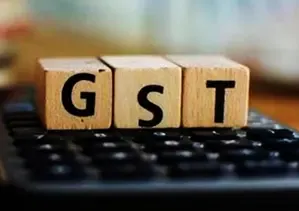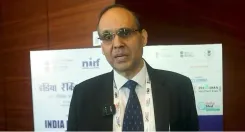How Has GST Enhanced India's Taxpayer Base and Eased Business Operations?

Synopsis
Key Takeaways
- GST has broadened India's taxpayer base.
- It has simplified business operations.
- There has been a significant increase in tax collections.
- Challenges in implementation were addressed effectively.
- Further improvements are necessary for the tax system.
New Delhi, July 1 (NationPress) The Goods and Services Tax (GST) has emerged as one of the most impactful reforms in India over the last decade, stated Dr. Manoranjan Sharma, Chief Economist at Infomerics Ratings, on Tuesday.
He emphasized that GST has not only broadened the nation’s taxpayer base but has also significantly streamlined the process of conducting business compared to previous eras.
In an interview with IANS, Sharma remarked, "India has experienced numerous crucial structural changes in the last ten years, with GST being a pivotal one."
“The figures speak for themselves. In the fiscal year 2024-25, GST collections reached an impressive Rs 22.08 lakh crore, with an average monthly collection of Rs 1.84 lakh crore — over 9% higher than the previous year. In comparison, GST collections for FY 2020-21 were Rs 11.37 lakh crore,” Sharma highlighted.
He also noted that the number of registered GST taxpayers has seen remarkable growth due to ongoing reforms by the government.
“When GST was first launched, there were about 60 lakh taxpayers. Today, that figure has skyrocketed to 1.51 crore,” Sharma informed IANS.
While recognizing the initial challenges faced during GST's rollout, Sharma pointed out that timely government interventions effectively resolved many issues.
“The gradual increase in GST adoption over time is a very encouraging sign for the Indian economy,” he added.
When questioned about a recent Deloitte survey indicating that 85% of businesses feel GST has positively impacted their operations, Sharma concurred with these findings.
“Previously, businesses grappled with multiple tax rates and compliance complexities. GST has unified the tax structure under the 'One Nation, One Tax' principle, making it far easier to conduct business in India,” Sharma stated.
He further mentioned that despite significant progress in GST implementation over the last seven to eight years, there remains potential for further enhancements.
“To advance effectively, we need to prioritize simplifying the tax process, addressing taxpayer complaints, and ensuring quicker refunds,” he elucidated.









